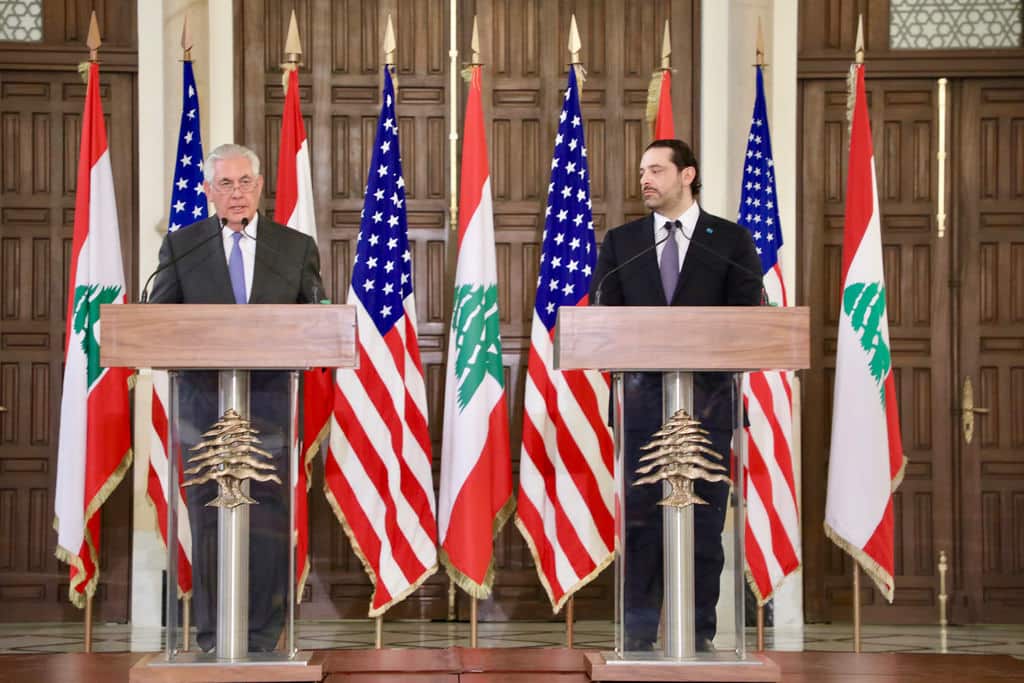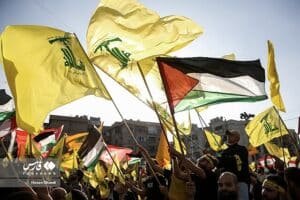Tensions between Lebanon and Israel have been rising in the past weeks due to their dispute over actions on their shared border. In February 2018, France’s Total, Italy’s Eni and Russia’s Novatek signed agreements on offshore energy exploration and production in an area, which Lebanon and Israel both consider to be their own territory.
Lebanon has been wanting to explore its offshore gas and oil resources for years following the examples of its neighbours Israel, Cyprus and Syria. But the country was without a president for over two years which caused a political impasse and a halt to the exploration plans. In 2016 President, Michel Aoun was elected and since the beginning of 2018, Lebanon has invited companies from all over the world to bid and invest.
Israel’s reaction to its neighbour’s plans have been consistently negative. Israeli Defence Minister Vigdor Lieberman called Lebanon’s decision “very provocative”. The government further advised companies to not consider the offshore energy exploration offer. Lebanese President Michel Aoun called this statement “a threat to Lebanon”. General Joseph Aoun further announced that it is the country´s right to “exploit all its economic resources” and that Israel is violating Lebanon’s sovereignty. He went so far to say that “the army will not spare any method available to confront any Israeli aggression, whatever that costs”. Additionally, he asked Prime Minister Saad Hariri about what to do if Israel in fact violated Lebanese territories. The instant reply was: “You shoot at them”.
How does the US want to settle the dispute? Wanting to ease the tension between both parties, US Secretary of State, Rex Tillerson, visited Lebanon on 15 February. He stated that he wants the frontiers to remain calm. To achieve that, he sent his acting Assistant Secretary of State, David Satterfield, to meet with Lebanese officials. The US envoy tried to mediate, but on 23 February, it was reported that the talks have failed “in advance” because they did not have consent of both countries to even negotiate. The Lebanese side criticises two aspects. For one, it fears that the negotiations could purposely be lead into peace talks. Secondly, it does not want the proposal by US-diplomat Frederic Hof to be the outcome. In 2012, Hof suggested a maritime demarcation line, which grants Lebanon two thirds and Israel one third of the disputed sea area (approximately 860 km2). Satterfield has supposedly changed the suggestion and has offered Lebanon 75% of the area. Parliament speaker Nabih Berri rejected the idea and called it “unacceptable”. He had met with Satterfield and stated his wish for the committee, which was formed for the 1996 ceasefire, to discuss alternatives once more. President Aoun on the other hand wants the dispute to be settled through a newly formed third party under UN sponsorship, as he declared on 24 February.
Hezbollah inflaming the argument Not appeasing the tension in the dispute, Hezbollah stated its opinion in a televised address. Secretary General Sayyed Hassan Nasrallah called the issue a “battle for all of Lebanon” and further elaborated: “If you (Israelis) prevent us (from exploration of gas and oil), if you bomb us we will bomb you, and if you hit us we will hit you”. His comments might have influenced statements of Hariri and Berri made on 15 February, when he and the President met Tillerson. Lebanese rhetoric has been harsh due to the sensitivity of the topic. Nasrallah also recommended to Lebanese officials that they could act against Israeli oil facilities if necessary. Negating any possible compromise, he advised the country to withstand the dispute. Furthermore, he called the US envoy dishonest and a biased mediator. He added his own solution by saying, something similar to the Blue Line border should be initiated.
Effects on other issues If the exploration of offshore oil and gas resources will be successful, it will have an impact on Lebanese domestic politics that should not be underestimated. The Lebanese Minister of Energy and Water, Cesar Abou Khalil, said that the resources could help the country’s economy. Tourism as one of Lebanon’s main revenue has declined because of the ongoing war in neighbouring country Syria. The most essential question after a possible success is how to distribute the revenue among the many existing and influential ethnic groups. Depending on the location of the discovered resources, different groups could demand an allocation according to local, patronage structures. Khalil suggested that the revenue could be divided into one part for the national budget and another one for investing into the already existing plan to create a sovereign wealth fund.
All involved parties consider diplomacy essential to solving the dispute. The main problem is that Lebanese and Israeli politicians have been exchanging harsh words with each other through media and official statements. The issue became a subject connected to further talks about the Blue Line, relations with other neighbouring countries like Syria and lastly US relations to Israel.
Sources:
Reuters I. Reuters II. Yalibnan Aljazeera RT Worldview Aawsat al-Monitor I. al-Monitor II. Ynetnews



